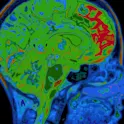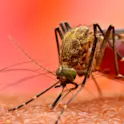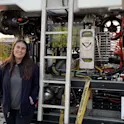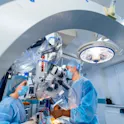
Robotics and AI
28 Feb 2023
‘My dream is for AI and brain organoids to explore each other’s capabilities’
by Liad Hollender, Frontiers science writer Image: Prof Thomas Hartung Over just a few decades, computers shrunk from massive installations to slick devices that fit in our pockets. But this dizzying trend might end soon, because we simply can’t produce small enough components. To keep driving computing forward, scientists are looking for alternative approaches. An article published in Frontiers in Science presents a revolutionary strategy, called organoid intelligence. This emerging scientific field aims to create biocomputers where lab-grown brain organoids (three-dimensional brain-cell cultures) serve as biological hardware. According to the authors, this technology could also drive progress in biomedicine, providing unprecedented insight into the human brain. To learn more about this exciting new field, we interviewed the senior author of the article, Prof Thomas Hartung. He is the director of the Center for Alternatives to Animal Testing in Europe (CAAT-Europe), and a professor at Johns Hopkins University’s Bloomberg School of Public Health. How do you define organoid intelligence? Reproducing cognitive functions – such as learning and sensory processing – in a lab-grown human-brain model. How did this idea emerge? I’m a pharmacologist and toxicologist, so I’m interested in developing medicines and identifying substances that are dangerous to our health, specifically […]













